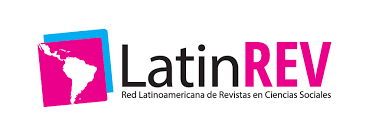Work stress and organizational climate in a local educational management unit
DOI:
https://doi.org/10.18050/eduser.v10n1a4Keywords:
Stress at work, organizational climate, organizationAbstract
Due to the nature of workdays, employees spend several hours in their workspaces. Based on this, communication links are established and friendly relationships are fostered, where the exchange of opinions is necessary in appropriate work environments. In this sense, the research aims to establish the relationship between work stress and the organizational climate. The study was developed following the processes of the quantitative approach, type of basic research with descriptive and correlational scope, non-experimental design with cross-section. The technique used was the survey and valid and reliable instruments based on theories that are currently in force, the theory of Maslach & Jackson (1981) for work stress and Litwin & Stringer (1968) for the work environment. Findings were found from the descriptive and inferential, according to the levels of each variable. The inferential results indicated the presence of an inverse and significant relationship, that is, the lower the work stress, the better the organizational climate of the collaborators. The organizational climate and stress are closely related. If the organization offers conditions that generate dissatisfaction, the organizational climate will be negative and this is reflected in stressed employees.
References
Ahmad, K., Jasimuddin, S. & Kee, W. (2018). Organizational climate and job satisfaction: do employees’ personalities matter? Management Decision, 56(2), 421-440. https://doi.org/10.1108/MD-10-2016-0713
Alfaro, J. (2019). Clima organizacional y satisfacción laboral en el Ministerio Público en el distrito Fiscal de Ventanilla 2019. [Tesis de grado. Universidad César Vallejo]. https://repositorio.ucv.edu.pe/handle/20.500.12692/42571
Alzghoul, A., Elrehail, H., Emeagwali, O.L. & AlShboul, M. (2018). Knowledge management, workplace climate, creativity and performance: The role of authentic leadership. Journal of Workplace Learning, 30(8), 592-612. https://doi.org/10.1108/JWL-12-2017-0111
Arias, W. (2012). Estrés laboral en trabajadores desde el enfoque de los sucesos vitales. Revista Cubana de Salud Pública, 38(4), 325-335. http://scielo.sld.cu/scielo.php?script=sci_arttext&pid=S0864-34662012000400004&lng=es&tlng=es.
Bada, O., Salas, R., Castillo, E., Arroyo, E. y Carbonell, C. (2020). Estrés laboral y clima organizacional en docentes peruanos. MediSur, 18(6), 1138-1144. https://www.medigraphic.com/cgi-bin/new/resumen.cgi?IDARTICULO=99588
Baena, P. (2017). Metodología de la investigación (3ª ed.). http://www.biblioteca.cij.gob.mx/Archivos/Materiales_de_consulta/Drogas_de_Abuso/Articulos/metodologia%20de%20la%20investigacion.pdf
Borja, J. (2021). Plan de comunicación interna en Pisende S.A.S. [Tesis de grado. Corporación Universitaria Lasallista, Colombia]. http://repository.unilasallista.edu.co/dspace/bitstream/10567/2976/1/20161183.pdf
Buendía, J. y Ramos, F. (2001). Empleo, Estrés y Salud. Pirámide.
Chiang, M., Sanhueza, C. y Rivera, M. (2022). Clima organizacional, ¿afecta al estrés laboral?: comparación entre funcionarios de la salud y seguridad pública. RAN - Revista Academia & Negocios, 8(1), 43-54. https://doi.org/10.29393/RAN8-6COMM30006
Cross, D. (2019). Effects of job stress on employee’s performance. International Journal of Business Management and Social Research, 6(2), 375–382. https://doi.org/10.18801/ijbmsr.060219.40
Dessler, G. (1976). Organización y Administración Enfoque Situacional. Prentice/Hall internacional.
Díaz, F., Guevara, S. y Vidaurre, W. (2019). Estrés laboral y clima organizacional en colaboradores del hospital Solidaridad, Chiclayo. UCV Hacer, 8(1), 31-40. https://www.redalyc.org/journal/5217/521758809014/html/
Dinibutun, S., Kuzey, C. & Dinc, M. (2020). The Effect of Organizational Climate on Faculty Burnout at State and Private Universities: A Comparative Analysis. SAGE Open, 10(4). https://doi.org/10.1177/2158244020979175
García, M. (2009). Clima Organizacional y su Diagnóstico: Una aproximación Conceptual. Cuadernos de Administrativo, 42, 43-61. http://www.scielo.org.co/scielo.php?script=sci_arttext&pid=S0120-46452009000200004
Gonzáles, N. (2020). Clima laboral, estrés laboral y satisfacción laboral en docentes de universidades privadas en Chimbote, 2019 [Tesis de doctorado, Universidad César Vallejo]. https://repositorio.ucv.edu.pe/handle/20.500.12692/44451
Hermosa, R., Angélica, M., Perilla, T. y Lyria, E. (2015). Retos investigativos en psicología de la salud ocupacional: el estrés laboral. Revista Facultad Nacional de Salud Pública, 33(2), 252-261. http://www.scielo.org.co/scielo.php?script=sci_arttext&pid=S0120-386X2015000200012
Hernández, R., Fernández, C. y Baptista, P. (2014). Metodología de la investigación (6ª ed.). Mc Graw Hill
Hernández-Sampieri, R. y Mendoza, C. (2018). Metodología de la investigación: las rutas cuantitativa, cualitativa y mixta. Mc Graw Hill.
Hombrados, M. I. (1997). Estrés y Salud. Promolibro.
Iglesias, A., Torres, J. & Mora, Y. (2020). Organizational climate studies: integrative review. MediSur, 18(6), 1189-1197. https://www.medigraphic.com/cgi-bin/new/resumenI.cgi?IDARTICULO=99594
Jeung, D.-Y., & Chang, S.-J. (2021). Moderating effects of organizational climate on the relationship between emotional labor and burnout among Korean firefighters. International Journal of Environmental Research and Public Health, 18(3), 914. https://doi.org/10.3390/ijerph18030914
Kolb, D. A., Rubin, I. M., & McIntyre, J. M. (1989). Psicologia de Las Org Problem. Prentice-Hall Hispanoamericana.
Larico, E., Machaca, D. F., Condori, L. W., y Apaza, K. (2021). Estrés laboral y rendimiento laboral de los trabajadores en entidades financieras. Dominio De Las Ciencias, 7(4), 356–372. https://doi.org/10.23857/dc.v7i4.2097
Litwin, G. H., & Stringer, R. A. (1968). Motivation and organizational climate. Boston.
Martínez, A. (2010). El síndrome de burnout. Evolución conceptual y estado actual de la cuestión. Vivat Academia, 112, 42-80. https://www.redalyc.org/pdf/5257/525752962004.pdf
Martínez-Arroyo, J. & Valenzo-Jiménez, M. (2020). Factors that influence the organizational climate of a higher education institution. Revisata Espacios, 41(26). https://www.revistaespacios.com/a20v41n26/a20v41n26p13.pdf
Maslach, C. & Jackson, S.E. (1981). MBI: Maslach Burnout Inventory. Manual. Palo Alto: University of California, Consulting Psychologists Press.
Méndez, C. (2006). Clima organizacional en Colombia. El IMCOC: Un método de análisis para su intervención. Colección de lecciones de administración. Universidad del Rosario.
Meza-De los Cobos, S., Morgan-Beltrán, J. y Díaz-Nieto, E. (2019). Intervención en el clima laboral para el desarrollo organizacional de una empresa de servicios logísticos. Desarrollo Gerencial, 11(1), 9–32. https://doi.org/10.17081/dege.11.1.3010
Moreno, S. I. (2018). Relaciones interpersonales en el clima laboral de la universidad tecnológica del Chocó Diego Luis Córdoba. CES Derecho, 9(1), 13–33. https://doi.org/10.21615/cesder.9.1.2
Moslehpour, M., Altantsetseg, P., Mou, W., & Wong, W.-K. (2018). Organizational climate and work style: The missing links for sustainability of leadership and satisfied employees. Sustainability, 11(1), 125. https://doi.org/10.3390/su11010125
Pereira, A. y Solís, D. (2019). Factores del clima organizacional: (Caso: Instituciones educacionales de San Carlos). Revista Scientific, 4(Ed. Esp.), 95–115. https://doi.org/10.29394/Scientific.issn.2542-2987.2019.4.E.6.95-115
Pilligua, C. F., y Arteaga, F. M. (2019). El clima laboral como factor clave en elrendimiento productivo de las empresas. estudio caso: Hardepex Cía. Ltda. Cuadernos Latinoamericanos De Administración, 15(28). https://doi.org/10.18270/cuaderlam.v15i28.2686
Sierra, R. (2008). Técnicas de investigación social. Teoría y ejercicios. Thompson.
Soriano-Tumbaco, C. (2021). El estrés laboral y su incidencia en el desempeño del personal administrativo. Killkana sociales. Revista de Investigación Científica, 5(1), 1-8. https://dialnet.unirioja.es/servlet/articulo?codigo=7903608
Vanajan, A., Bültmann, U., & Henkens, K. (2020). Health-related work limitations among older workers—the role of flexible work arrangements and organizational climate. The Gerontologist, 60(3), 450–459. https://doi.org/10.1093/geront/gnz073
Vargas, A., Gaibor, I. y Rodríguez, M. (2022). Relación entre el Burnout, Engagement, Afrontamiento al estrés y Optimismo en personal de organización no gubernamental. Revista Imaginario Social, 5(1). http://www.revista-imaginariosocial.com/index.php/es/article/view/67
Wahyuni̇, F., Wi̇yono, B. B., Atmoko, A., & Hambali̇, İ. (2019). Assessing relationships between emotional intelligence, school climate and school counselors burnout: A structural equation model. Journal for the education of gifted young scientists, 7(4), 1361–1374. https://doi.org/10.17478/jegys.639397
Yslado, R., Ramirez, E., García-Figueroa, M. y Arquero, J. (2021). Clima laboral y burnout en profesores universitarios. Revista Electrónica Interuniversitaria de Formación del Profesorado, 24(3). https://doi.org/10.6018/reifop.476651
Additional Files
Published
How to Cite
Issue
Section
License
Copyright (c) 2024 Sergio Augusto Reyes Barrios, Dora Lourdes Ponce Yactayo

This work is licensed under a Creative Commons Attribution 4.0 International License.













